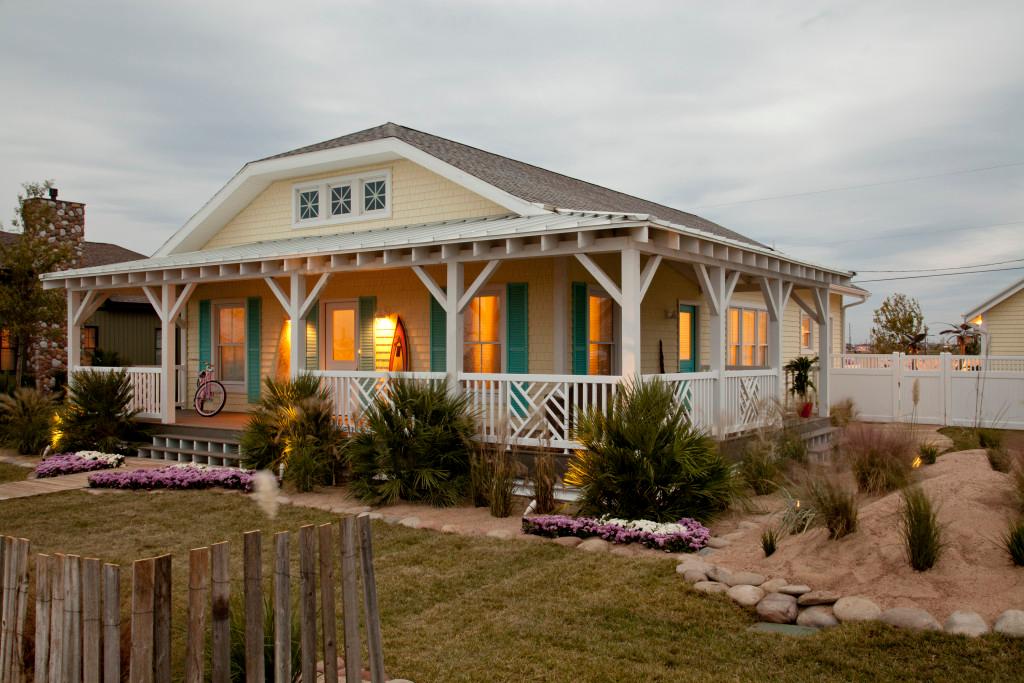Myth Busters: Why Vinyl Siding is America’s Hottest Home Design Feature
Chances are, you’ve seen and heard a lot about vinyl siding on home renovation television shows, in magazines and in your neighborhood. Once seen as a drab and boring alternative to aluminum siding, vinyl siding is now driving new design trends, effortlessly adapting to any architectural home style.
According to the U.S. Census Bureau, vinyl siding is a hot home exterior material, appearing on nearly one third of all new homes built in 2012, more than any other cladding material.
Still unsure about vinyl siding? Consider these myth-busting facts:
Myth: Vinyl siding is boring and looks cheap
Vinyl siding has come a long way since it was introduced in the 1950s and manufacturers have made strides in research and development efforts for design and performance. Nearly 350 vinyl siding colors have been certified for color retention, according to the Vinyl Siding Institute (VSI). The variety offers homeowners a virtually endless palette of fade-resistant colors, combined with complementary trim, accents and accessories. Additionally, the texture and attention to detail on the siding panels make high-end vinyl siding nearly indistinguishable from wood clapboard, cedar shake shingles or other traditional materials.
Thanks to these advancements in color and technology, top designers on shows like “Extreme Makeover: Home Edition” and “George to the Rescue” have recently made vinyl siding a focal point of their renovation and new-build home designs. And many historical societies across the U.S. have turned to vinyl siding for historic home renovations because of the wide selection of period colors, architectural details and low-maintenance benefits.

The “Beach Cottage” home from the Joplin, MO episode of Extreme Makeover: Home Edition features vinyl siding and accessories.
“After the devastating tornado in Joplin, Mo. in 2011, we built seven houses in seven days using vinyl siding exteriors,” said Kim Lewis, architectural designer of Kim Lewis Designs and former lead designer for ABC’s “Extreme Makeover: Home Edition. “At first I was skeptical, but we were able to bring forward character-driven design on each of the home’s exteriors with vibrant colors and architectural elements. After spending some time with the material, I have a very positive outlook on vinyl siding.”
Myth: Vinyl trim doesn’t have the authentic look of wood
A common misconception about vinyl siding is that trim options don’t offer a high-end look like authentic wood. Though in recent years, siding manufacturers such as Ply Gem have made significant strides in the design of low maintenance, holistic finishing solutions for windows, doors, eaves, gables, columns and more, introducing trim and mouldings made from cellular PVC.
These trim packages are designed to look and function like real wood, accentuating the best features of any architectural home style, but eliminating the need to clean, replace or stain in years to come. With today’s trim options, even the most discerning homeowners will find there’s no need to compromise beauty to get low-maintenance curb appeal.
Myth: Vinyl siding isn’t durable
Don’t let the light weight of the product fool you. Products like Mastic Home Exteriors by Ply Gem vinyl siding are manufactured with technologies tested to resist wind speeds of more than 200 mph. These products have been put to the test and withstood the elements in recent storms such as Superstorm Sandy.
In addition to holding its own against Mother Nature, vinyl siding puts up a pretty good fight against Father Time. The product has tremendous longevity, in many cases lasting 30 years or more with very little maintenance and low cost of ownership. Vinyl siding does not need to be painted and it can be cleaned with simple soap and water.
If you believed the myths above, don’t be discouraged. One thing that is undeniably true is that vinyl siding will continue to lead the way in exterior home design. For links to more facts and studies on vinyl siding, visit www.plygem.com. Homeowners can experiment with vinyl siding colors and options before committing to a new build or renovation, offering exterior design tools for photo-realistic virtual makeovers on a variety of architectural home styles.
